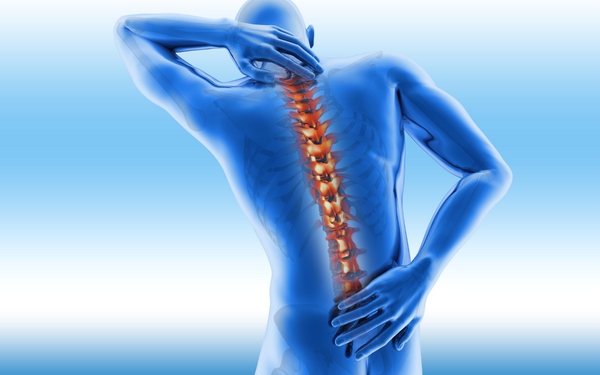Spine health is crucial in maintaining overall well-being, as the spine supports our body’s structure and enables movement. Issues related to the spine, such as back pain, spinal disorders, and injuries, can significantly impact day-to-day activities and quality of life. Whether it’s due to poor posture, ageing, or injury, these problems require timely medical attention. Fortunately, the national capital has some of the finest healthcare centres that offer the best treatment for spine-related issues.
Along with understanding your condition, consulting a spine specialist in Delhi is important. It can ensure a proper diagnosis and customised treatment plan for your condition.
Medications for Managing Spine-Related Pain
Medications are often the first line of treatment for managing spine-related pain. For conditions like lower back pain, sciatica, or herniated discs, pain relief medications such as nonsteroidal anti-inflammatory drugs (NSAIDs) are commonly prescribed. These medications help reduce inflammation and alleviate discomfort. Muscle relaxants are also prescribed when muscle spasms accompany the pain. While medications can relieve symptoms temporarily, they need to be carefully managed to prevent dependence or side effects.
In cases where pain is more severe or persistent, a spine specialist in Delhi may prescribe more potent pain relievers or even corticosteroid injections. These injections target inflammation in the affected areas, providing longer-lasting relief. However, medication is often part of a broader treatment strategy, combined with other therapies to address the underlying issues of the spine.
Physical Therapy and Rehabilitation for Spine Health
Physical therapy is one of the most effective treatments for spine-related conditions. It focuses on improving flexibility, strengthening the core, and enhancing mobility. Physiotherapists design personalised exercise programs based on a patient’s condition, ensuring gradual improvement. Stretching exercises target the muscles surrounding the spine, reducing tension and increasing flexibility. Core strengthening exercises help support the spine and prevent further injury.
Physical therapy is especially beneficial for patients recovering from spine surgery or those managing chronic back pain. Rehabilitation programs can vary in duration, depending on the severity of the condition, but regular therapy sessions are critical for long-term recovery. Moreover, ongoing exercises after therapy can help maintain spine health, prevent future issues, and reduce reliance on medications.
Minimally Invasive Procedures for Spinal Disorders
For patients whose conditions do not respond to medications or therapy, minimally invasive procedures can offer effective relief without extensive surgery. Techniques such as radiofrequency ablation or spinal injections target specific nerves to block pain signals, significantly reducing pain. These procedures are performed outpatient, and the recovery time is often shorter than traditional surgery.
Another popular minimally invasive option is microdiscectomy, commonly used for herniated discs. In this procedure, the surgeon removes the portion of the disc pressing on the nerve, alleviating pain and other symptoms like numbness or weakness in the legs. Minimally invasive procedures reduce the risks associated with open surgery and are particularly beneficial for older patients or those with other health concerns.
Surgical Interventions for Severe Spine Conditions
When conservative treatments are ineffective, surgical intervention may be necessary to address severe spinal conditions. Spinal surgeries, such as spinal fusion, laminectomy, or disc replacement, are considered in cases of severe herniation, scoliosis, or spinal fractures. While surgery is often viewed as a last resort, advances in technology have made it safer and more effective. Today’s surgical techniques focus on preserving as much of the spine’s natural movement as possible.
Spinal fusion is commonly recommended for patients with degenerative disc disease or significant instability in the spine. This procedure involves joining two or more vertebrae to restrict movement and relieve pain. Another option, disc replacement surgery, replaces a damaged disc with an artificial one, preserving mobility. Both surgeries require the expertise of an experienced spine specialist in Delhi to ensure optimal results and reduce the risk of complications.
Lifestyle Changes for Maintaining Spine Health
In addition to medical and surgical treatments, lifestyle changes play a significant role in maintaining spine health. Poor posture, lack of physical activity, and excess weight can contribute to spinal issues. Simple adjustments like sitting correctly, exercising regularly, and maintaining a healthy weight can prevent or minimise back problems. A well-balanced diet rich in calcium and vitamin D also supports bone health, helping the spine stay robust and less prone to injury.
Many patients need to pay more attention to the importance of ergonomics in everyday activities. Proper posture while sitting, standing, or lifting heavy objects can prevent strain on the spine. Spine health is a long-term commitment, and adopting these changes helps prevent the recurrence of issues and supports recovery from existing conditions.
Know more about : Most Advanced Robotic Spine Surgery System of India is Now Available at BLK-Max Hospital
Conclusion
Taking care of your spine is essential for overall mobility and comfort. Whether you are dealing with mild back pain or more severe spinal disorders, there are numerous treatment options available. Depending on the condition, medications, physical therapy, minimally invasive procedures, and surgery can all be effective. Consulting a spine specialist in Delhi ensures you receive the most appropriate treatment tailored to your needs. With proper care and lifestyle adjustments, you can maintain spine health and reduce the risk of future complications, leading to an active and pain-free life.





























